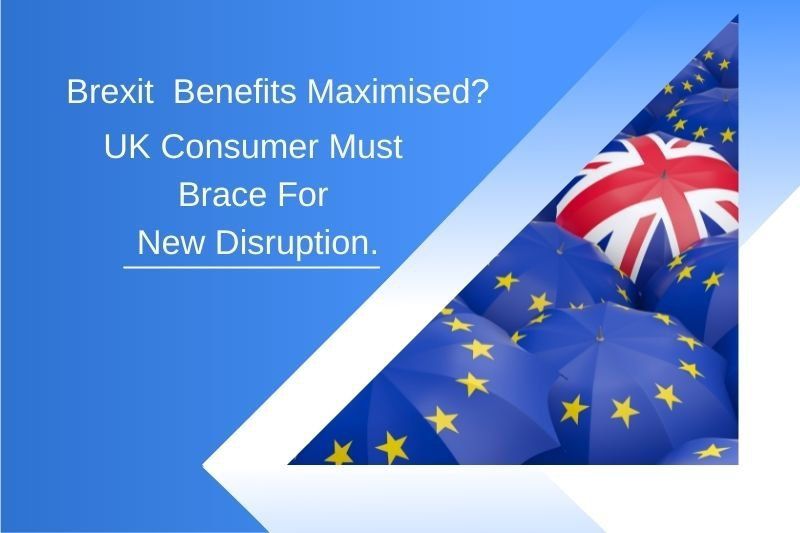Boris Johnson is set to maximize the benefits from Brexit, but both consumers and traders in the UK must brace for new disruption. This is more or less the 2022 forecast.
From 1 January 2022, goods entering the UK from the EU or elsewhere will need a full customs declaration. Importers and traders will no longer benefit from the possibility to delay this declaration. The opportunity to stall documentation at the border for 175 days is no longer available.

Further Disruption Due to New Rules Are Expected
Having said this, the Benefits of Brexit will be used to the fullest extend. That is the thrust of Boris Johnson's message to British consumers. He made a vow in December 2021 to maximize the benefits for the UK. The same consumers however are advised to expect further disruption as new laws are set to take effect. According to the Prime Minister, the UK Government will "go further and faster” to take advantage of the “enormous potential that our new freedoms bring” in the new year.
As for the new rules: the British Frozen Food Federation (BFFF) already said that new border controls will cause serious delays at ports in 2022. Food import in the UK is 5 times the amount as their export. This means that especially in January the risk of major issues in the food supply chain is serious. Also, two mobile phone networks, EE and Vodafone, will reintroduce roaming charges for their clients traveling to Europe, starting from January immediately. Three will follow this step in May 2022.
"Restore Common Sense to UK Rulebooks"
Nonetheless, Prime Minister Johnson stated that his administration will “cut back on EU red tape” and restore “common sense to our rulebooks” in 2022. He heralds the departure from the EU. It allows Britain to forge its own policies on immigration, coronavirus vaccines, bilateral trade deals and standards. At the moment, officials are analyzing retained EU law: thousands of Brussels made regulations which have automatically been kept on the statute book after Brexit. Laws that do not stand up to criteria that benefit the UK will be reformed or even repealed.
Great Britain Is Set to Take the Lead Regarding Regulations of Innovative Products
The UK is also looking to take the lead on regulations regarding artificial intelligence and self-driving cars. further, Great Britain is set to reform data rights to be “more proportionate and less burdensome than the EU’s GDPR” regime, and reform medical devices regulation to allow for the introduction of “cutting edge technology” in the health sector.
The Prime Minister said: “A year ago today we entered our new relationship with the EU through the world’s biggest ever zero-tariff, zero-quota free trade deal – the UK-EU Trade and Cooperation Agreement. That was just the start: our mission since has been to maximize the benefits of Brexit so that we can thrive as a modern, dynamic and independent country.
“We’ve replaced free movement with a points-based immigration system. We’ve secured the fastest vaccine rollout anywhere in Europe last year by avoiding sluggish EU processes. And from Singapore to Switzerland, we’ve negotiated ambitious free trade deals to boost jobs and investment here at home."
“But that’s not all. From simplifying the EU’s mind-bogglingly complex beer and wine duties to proudly restoring the crown stamp onto the side of pint glasses, we’re cutting back on EU red tape and bureaucracy and restoring common sense to our rulebook.
“The job isn’t finished and we must keep up the momentum. In the year ahead my Government will go further and faster to deliver on the promise of Brexit and take advantage of the enormous potential that our new freedoms bring.”
Conclusion
It is clear that this government intends to make rapid progress in the process towards full independence from the EU. The self-proclaimed successes that have already been achieved are eagerly used to pat themselves on the back. However, the near future will show whether this is how it feels not only to the British consumer but also to traders and importers.
